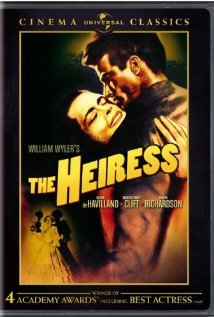With movie award season being well and truly underway, all thoughts are no doubt turned towards that most prestigious film award of all – the Oscar. I happened upon a certain statistic recently which led to this review. Did you know that in the Academy Awards’ 85 year history, there are two films that hold the record for the most nominations? It probably won’t require too much head-scratching to bring to mind one of them because most of us past our teens can probably remember the night James Cameron hailed himself “King of the World” when his 1997 epic Titanic took home 11 wins out of 14 nominations. That’s a lot of categories to be up for and let’s face it, Titanic was, and still is, visually impressive. But almost half a century earlier, All About Eve was the talk of the town when it too was nominated in 14 categories. It would end that night of the 23rd Academy Awards show with winning far fewer statuettes than Cameron’s blockbuster (though 6 including Best Picture and Best Director is still an incredible achievement) however it would win one that Titanic wasn’t even nominated for – Best Screenplay. And All About Eve is still the only film in Oscar history to receive four female acting nominations, two in both the Best Actress and the Best Supporting Actress categories.
Funnily enough, the film begins at an awards dinner where Broadway’s latest, hottest star Eve Harrington (Anne Baxter) is being recognised for her breakout performance in a critically acclaimed new play. Slimy theatre critic Addison DeWitt (George Sanders) watches the proceedings from his table and in a rather derisive voiceover, recalls how Miss Harrington’s star soared as quickly as it did.
Flash back a year and we meet Margo Channing (Bette Davis) in her dressing room after a night’s performance of a play. Margo is one of Broadway’s biggest stars, successful but inevitably jaded and aware that, at forty, her career has only one way to go. One of Margo’s closest friends Karen Richards (Celeste Holm) who also happens to be the wife of the play’s author Lloyd Richards (Hugh Marlowe) meets starstruck fan Eve Harrington outside the stage door and decides to make the young fan’s day by taking her backstage to meet her idol. Margo and her friends, including Margo’s young director boyfriend Bill Sampson (Gary Merrill) find Eve and her reverence of Margo and the theatre in general charming and following a touching story Eve recounts about her difficult life to date, Margo moves her into her house and takes her under her wing as an assistant.
Everything’s peachy and everyone adores the lovely, helpful Eve. All except Margo’s maid Birdie (Thelma Ritter) who senses something the others do not. And it’s not long before Eve subtly begins to reveal her true intentions and nature. It’s all done with such a sweet humble facade but she slowly schemes her way to becoming Margo’s understudy and then, by cold, measured manipulation of Margo’s relationships with Lloyd, the writer and Bill, the boyfriend and director, she conspires to usurp Margo in the plays Lloyd writes for her. As the film progresses, we are witness to the full range of trials and tribulations that theatre folk are faced with as well as all the emotions that close friends and colleagues have to deal with.
At the end of the film, we return to its beginning at the awards dinner as Eve receives her trophy. So it’s clear she attains the fame and critical acclaim she so craved. But at what cost? Addison DeWitt, cynical as well as slimy, has dug into Eve’s past and uncovered skeletons she’d rather keep buried and so, in exchange for his silence, he informs Eve prior to the awards dinner that she now “belongs” to him. The final scene of the film mirrors the first in that it appears the ‘user’, Eve, is about to become the ‘used’ when another young starstruck girl, Phoebe, finds her way into Eve’s apartment with the obvious (to us, the audience) intention of insinuating herself into the now, shining Broadway star’s life. What goes around comes around.
The casting of this movie was inspired. Everyone is right on the money; it’s no wonder there were so many acting award nominations. George Sanders was ultimately the only winner and his portrayal of the charming but insincere theatre critic is masterful. Bette Davis was brought in after the first choice of Claudette Colbert suffered a back injury and had to withdraw shortly before filming began. Davis, who commented that the script was one of the best she had ever read, later admitted that when Joseph L. Mankiewicz cast her in this movie, he saved her career from oblivion after a series of unsuccessful films. Even Marilyn Monroe in an early role as young starlet Miss Casswell is terrific. Watch closely and you can definitely see signs of what would soon make her a star.
Together with Mankiewicz’s writing and directing, the film received overwhelmingly positive reviews upon its release and even now, over 60 years later, it’s easy to see why. The dialogue is at times witty, at others moving but always sparkling and true and Mankiewicz paces the story perfectly. The movie is 2 hours and 20 minutes long but you’ll never know it.
It’ll come as no surprise that the film turns up in numerous top 100 film lists, American Film Institute’s as well as others and the film is usually always selected to highlight Davis’ legendary career. In 1990, it was selected for preservation in the United States National Film Registry by the Library of Congress as being “culturally, historically or aesthetically significant.”
In short, All About Eve is the epitome of a classic Hollywood movie. It has every necessary ingredient and it’s brightness in the firmament of greatness grows with the passage of time. And unlike so many movies of today, it doesn’t rely on special effects, explosions or unfeasible action sequences to keep you in your seat. It’s a group of talented artists who came together to create, for us, something quite wonderful.





